They say imitation is the most sincere form of flattery. If that’s the case, then developer Reikon absolutely adores Ghostrunner and Doom Eternal, and, to a lesser extent, Halo and Metroid. Its latest game, the sci-fi first-person shooter Metal Eden, takes lessons from all those titles, to some degree or another. And while the studio isn’t shy about borrowing ideas, it doesn’t do so in a slavish way. Metal Eden represents a constructive interpretation of those earlier games, infused with its own mythology, narrative, and fighting mechanics.
Those fighting mechanics are what bring Metal Eden closest to greatness. As Aska, a humanoid Hyper Unit capable of amazing dexterity, strength, and regenerative power, you’ll engage in dozens of firefights against rogue AI enemies. You must leverage your agility by jumping, hovering, dashing, and wall-running; leverage your arsenal by firing primary and secondary shots; and leverage your synthetic body to rip cores from staggered or unarmored enemies.
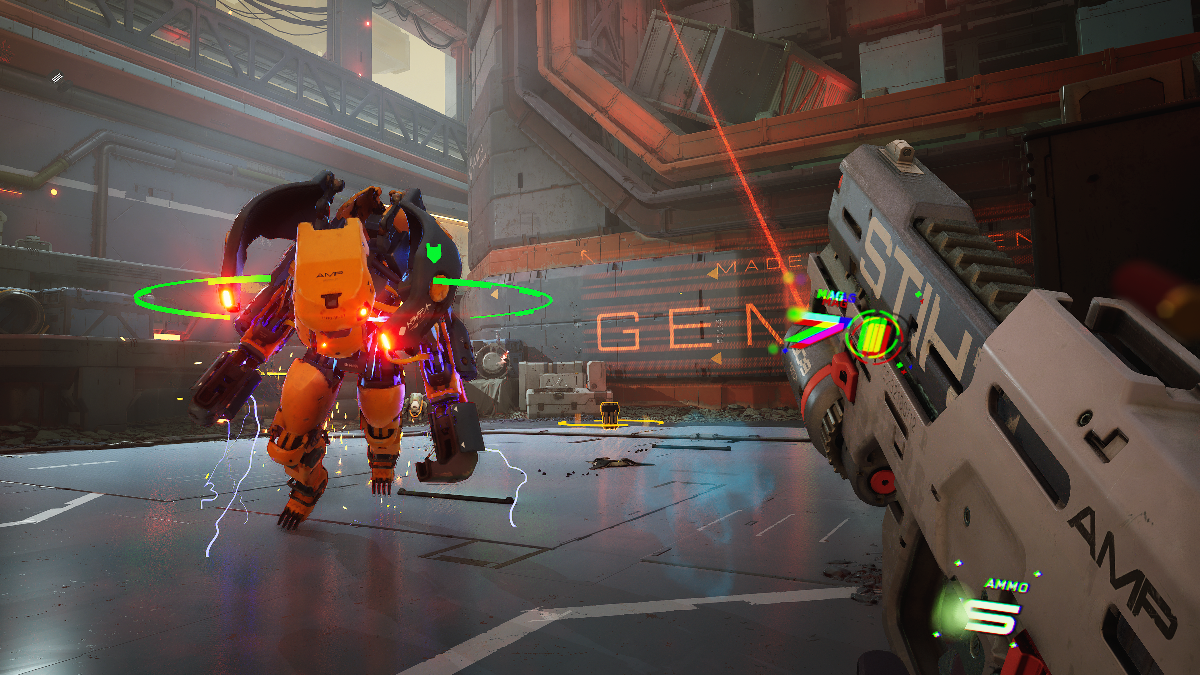
When the game focuses only on its moment-to-moment action, it’s splendid. It will often deposit you in an arena with platforms, pits, wall-running pads, grapple points, and regenerating power-ups, and then spawn in several waves of increasingly dangerous enemies. Just as in games like Ghostrunner and Doom, you must keep moving. That means backing away from melee attacks, avoiding projectiles with heavy splash damage, and dancing around each area collecting ammo, health, and armor refills as soon as they appear.
It also means going on the offensive. Thankfully, Aska has seven unique weapons at her disposal, alongside grenades and a close-quarters melee attack. Her most interesting ability, though, is Core Extraction, which helps differentiate Metal Eden from the many games that influenced it. When in close proximity to an unarmored enemy, the heroic Hyper Unit can pull out its life-giving core, killing it instantly. Then, she can either press L1 to throw it at other opponents, dealing area damage and triggering ammo drops, or hold L1 to consume it, activating Super Punch and restoring her health. Super Punch instantly shatters most armor in a single hit.
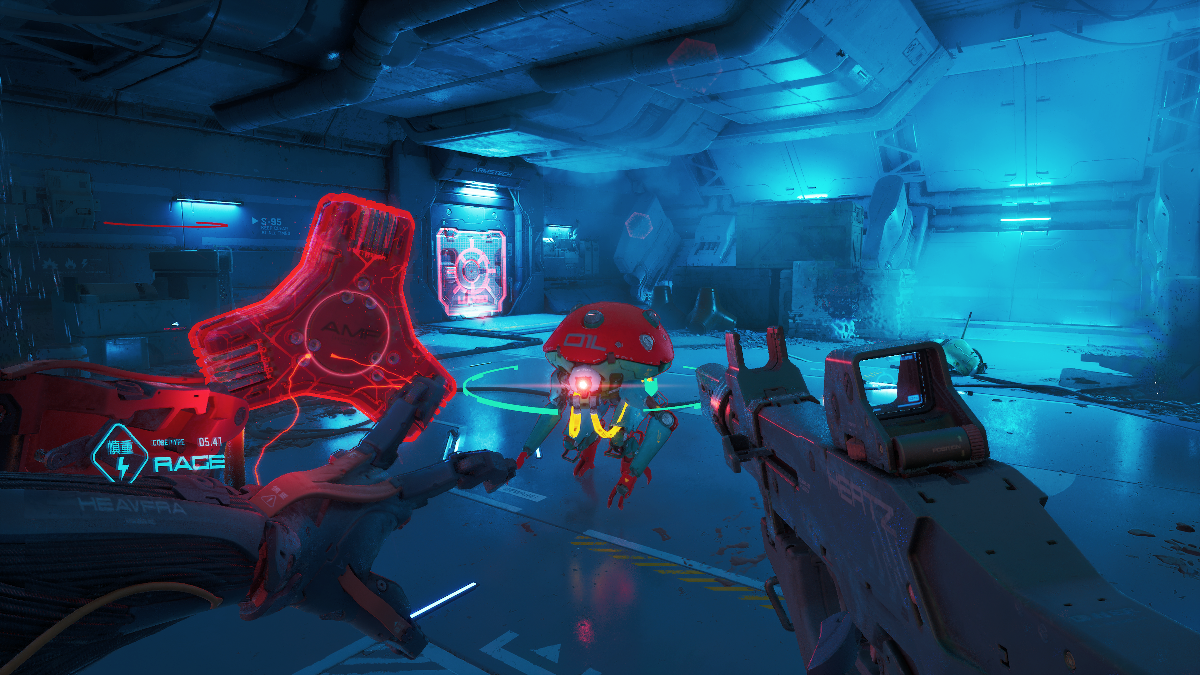
Stripping enemies of their armor is an essential part of Metal Eden. Aska can accomplish this via Super Punch or by using any of her energy weapons. In this way, the game emulates Halo; it’s all about destroying armor with energy weapons and then finishing off the unarmored foe with kinetic weapons.
When you combine all these pieces — dashing, wall-running, grappling, projectile and melee attacks, and the tactical, on-the-fly decision-making of core extraction — you’re left with an exceptional first-person shooting experience.
Regrettably, everything adjacent to that excellent gunplay and moment-to-moment action is flawed in some way. This is certainly true of the game’s story, which is arguably its weakest component. Now, don’t misunderstand; the premise is actually quite good. In the future, in an attempt to branch out both physically and metaphysically, humanity developed CORE technology, a system capable of digitizing consciousness and storing it in secure psyche units. This breakthrough made interstellar travel and colonization a reality, and essentially allowed human beings to live forever. In this future, humankind has established the floating city of Moebius above the planet Vulcan. Something went horribly wrong, however, and now all the cores holding the consciousness of its citizens are in imminent danger.
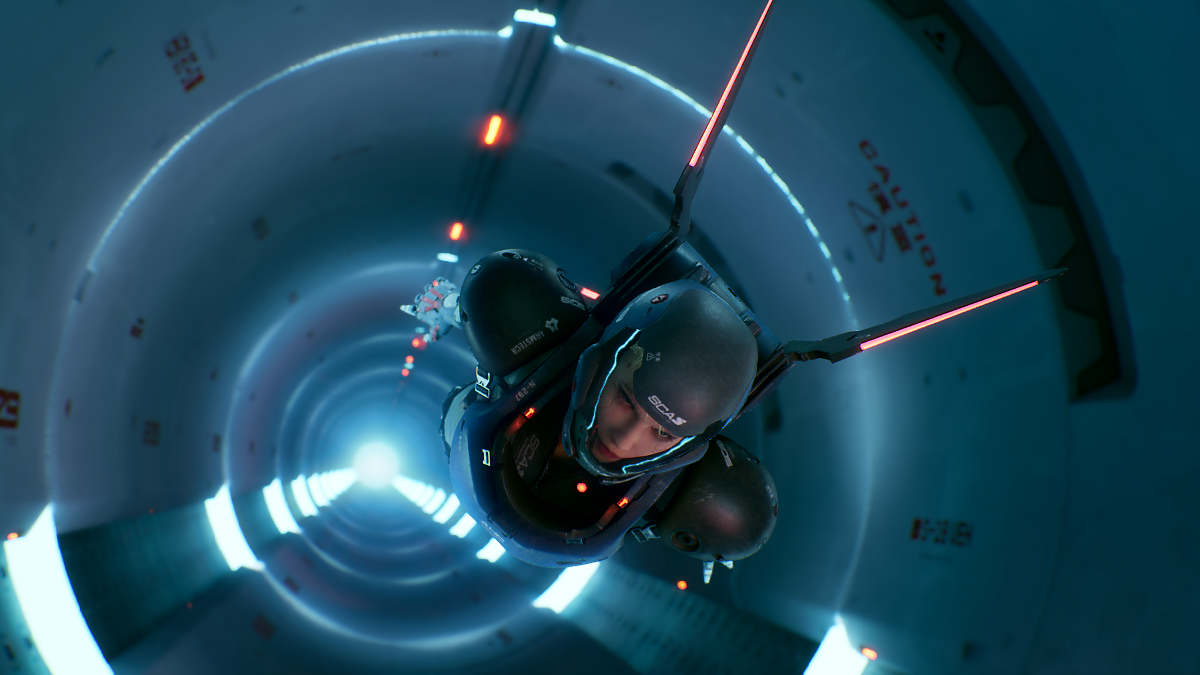
The problem lies in the delivery of the story. It’s delivered to you in the downtime between arena battles by voices in your earpiece. All throughout the game’s campaign, someone is constantly talking at you, dumping details on the history of humanity or the jealous motives of its AI constructs. It’s just not interesting. The exposition doesn’t really help you understand or care for the world around you; really, it’s more confusing and intrusive than anything. And the answers it provides, not to mention the conclusion it ultimately leaves you with, are not entirely satisfying.
The world itself is also fairly underwhelming, or at least not as triumphant as the gunplay. While the game benefits from some stylish futuristic art direction, it suffers from a disjointed feeling. Individual sections of Moebius are connected by elevated rails, along which Aska must grind to reach her next destination. Flying through open space is thrilling, sure, but it gives the impression that you’re not journeying into deeper and darker parts of the city, but just teleporting to the next enemy-infested arena. It also hurts that there aren’t more branching paths or secrets. Sure, there are a few hidden chambers with extra lives and deposits of dust (the currency of the game) but these are exceptions to the rule. For the most part, Metal Eden funnels you forward along a set path, invisible walls and all.
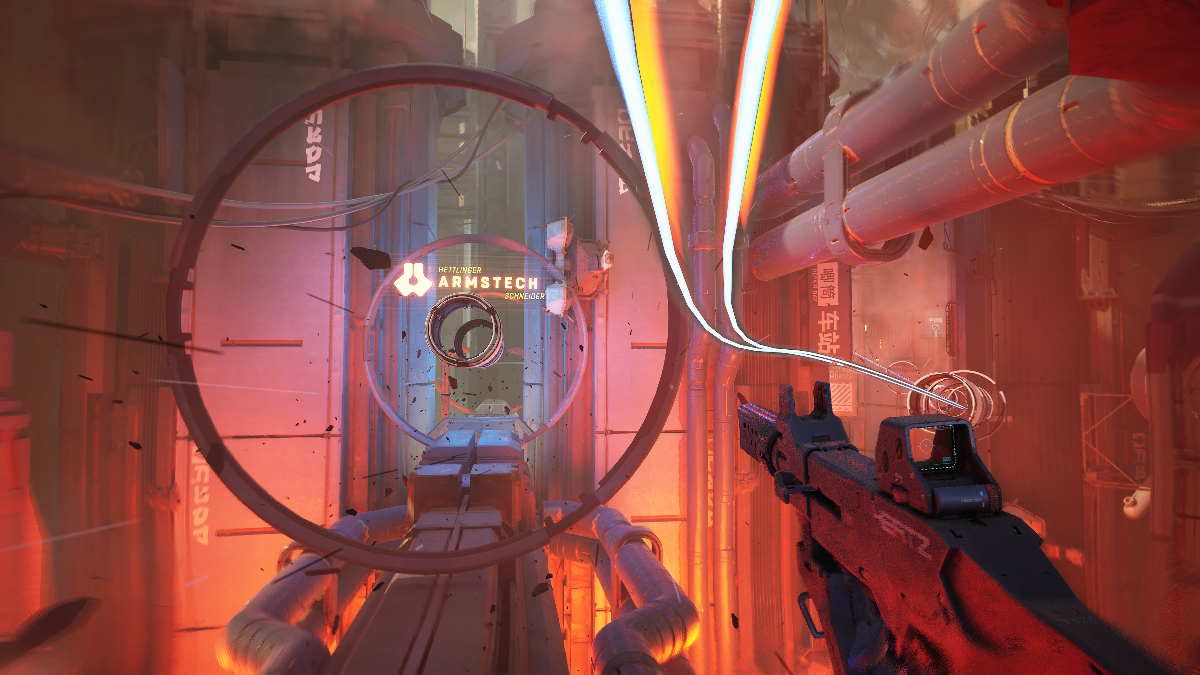
Because of its linear approach, it’s a relatively short game. It should take you six to seven hours to see it all, depending on how many restarts you require. Regrettably, there are no additional modes to unlock after that. You can always replay the campaign on four different difficulty settings — easy, normal, hard, and brutal — and hunt for the trickiest trophies, but you can’t mess around in horde or endless mode. It’s a missed opportunity, considering the beautiful combat loop.
Speaking of beauty, the art direction in Metal Eden goes a long way toward elevating the experience. The far-future, cyberpunk designs, matched with the shiny, clean chrome-like facade, effectively transport you to a dystopian, corporatized world. Even better are the enemy and gun designs. You’ll face off against scurrying drones, hulking mechs, armored bots with heavy turtle-like shells, giant mechanical spiders with spindly legs, and fast-moving bipedal soldiers with long metal lances. And you’ll dispatch them with several fascinating firearms. Perhaps the most elegant is your default SMG, a thin, compact, steel-gray workhorse with a barrel that glows bright orange when it overheats.
The guns all sound the part, as well. The SMG provides a rapid-fire staccato, the hand cannon echoes loudly throughout each arena, and the Striga energy weapon (my personal favorite) sends out a sparkling stream of static. As for the shotgun, you can almost hear the shells sliding through the barrel.
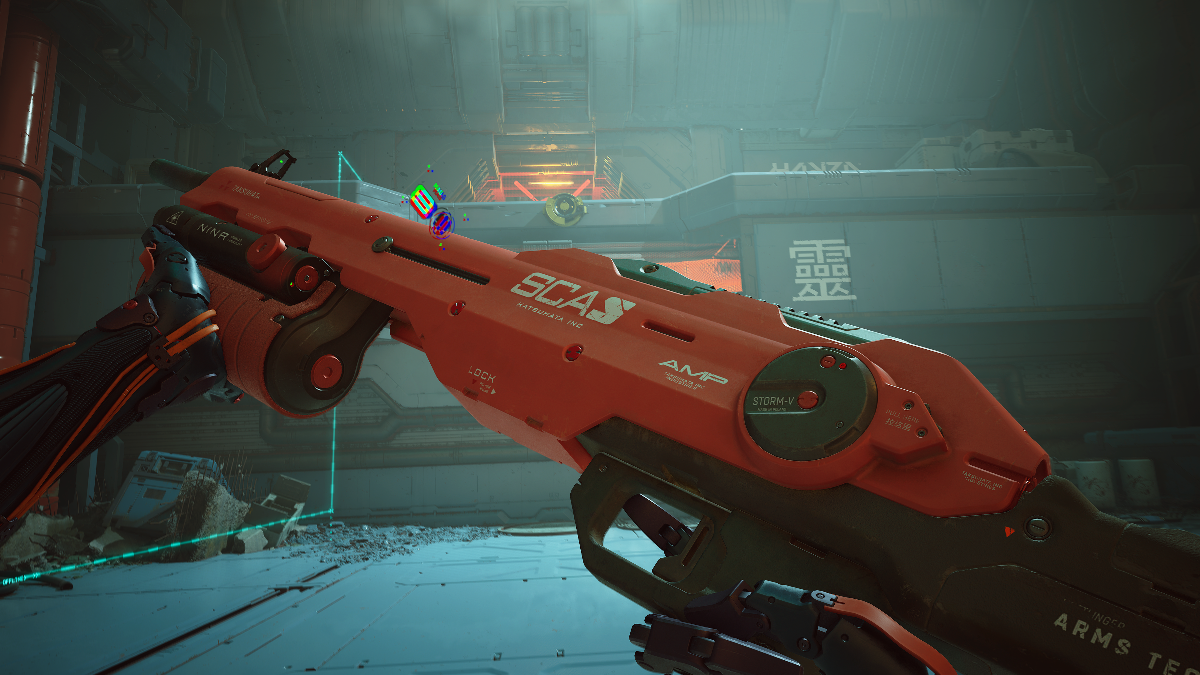
The soundscape in the game, in general, is quite good. The voice-over work, despite the lackluster story, is compelling, and the soundtrack by composers Wioleta Wnorowska (Wiolation) and Sonic Mayhem is a potent mix of mood music, synth, and hardcore electronica.
Metal Eden owes a lot to games like Ghostrunner and Doom, but it’s far from a slavish clone. Thanks to its far-future setting, dystopian premise, core-ripping mechanic, and bold production design, it feels like its own thing. And while some of its novelties don’t pay off — the story is disposable and the world a bit too confined — its successes in gunplay, mobility, and on-the-fly tactical decision-making help offset those flaws. With a longer, more interesting campaign and a larger, broader world, Metal Eden could be something special. Even without those things, it’s a short-but-sweet shooter ideal for those who value frenetic action above exploration and exposition.
Full Article – https://www.vgchartz.com/article/465635/metal-eden-ps5/


